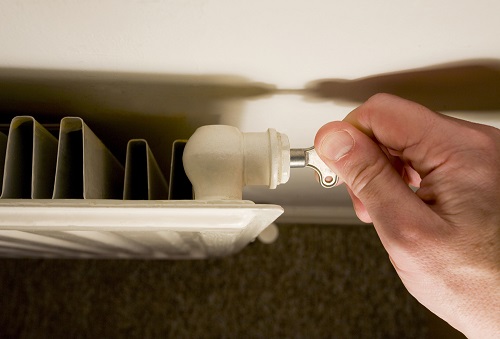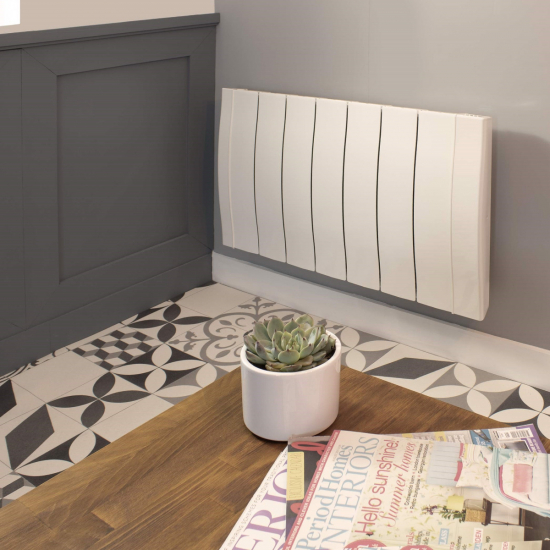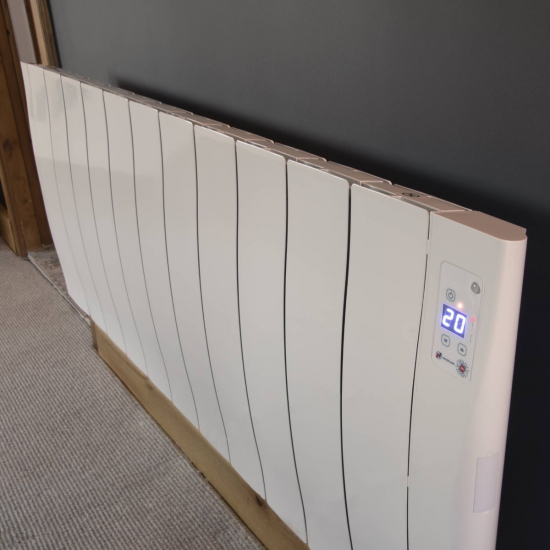 Choosing between gas and electric has always presented a quandary for landlords. This is truer now than it’s ever been, with savvy tenants increasingly listing the choice of heating system as a key consideration when browsing rental properties.
Choosing between gas and electric has always presented a quandary for landlords. This is truer now than it’s ever been, with savvy tenants increasingly listing the choice of heating system as a key consideration when browsing rental properties.
Of course, tenant satisfaction often comes at an increase in expenditure, so it’s important to find a heating solution that strikes the right balance between quality and affordability. You could save some money by keeping an old or inefficient system, but you might notice your tenants moving on as soon as their contracts run out. On the other hand, if you’re installing a new system, it’s important to weigh up just how much the initial cost will be, as well as any subsequent maintenance further down the line. If you’re a landlord in a similar predicament, electric radiators may be just the solution you’re looking for!
Storage Heaters vs Electric Radiators
It can be tempting not to invest in the heating of your rental properties. There are a whole host of alternative home improvements that make a more obvious superficial impact and can seem more important when it comes to attracting tenants. However, high heating bills, cold evenings and frustration over controllability will all take their toll on your property’s attractiveness to tenants – and not just after they’ve moved in. Many potential tenants will be put off by properties solely heated by convection heaters or storage heaters.
The drawbacks of a system of convection heaters are obvious. Whilst convection heaters can be effective as back up heaters or heaters in little used rooms, they do not have the hard-wearing efficiency required for whole home heating. Potential tenants will be concerned about their cost to run, and may believe they represent a lack of commitment to tenant welfare on the part of the landlord.

Storage heaters, meanwhile, are intended for permanent heating – but they are very much out of vogue these days, with a reputation for inflexibility and expense. Traditionally, storage heaters have offered an array of benefits to both landlords and tenants. From the landlord’s point of view, they boast an incredibly long service life, easy installation and very little maintenance. For tenants, they offer the potential to save money on heating bills by making use of Economy 7 energy tariffs. However, modern lifestyles have made it increasingly difficult for tenants to benefit from this setup. Many tenants, particularly young professionals and couples with children, spend the majority of their daytime hours at work or school. Many of the storage heater’s hours of heating are wasted on an empty house, which will quickly go cold in the evening as the heating charge expires. The increase in the number of gadgets and electric appliances used during the day has also made Economy 7 tariffs unpopular to the point of notoriety, because daytime electricity prices are charged at a higher rate, adding up to some hefty bills for gadget fans.
Switching to Electric Radiators
If your properties are currently using storage heaters or electric heaters, a switch to electric radiators can make an excellent compromise! Unlike storage heaters, electric radiators can kick out heat whenever you need it, so your tenants won’t have to struggle predicting their heating needs in advance. This does mean they shouldn’t be used on an Economy 7 tariff, but they are so efficient that you will still be able to save money – quite apart from the fact that daytime rates for electricity will decrease when you move to a standard tariff. Heating by radiation as well as convection, electric radiators are much more efficient than either storage heaters or convection heaters. They also offer 24/7 programming – set by either yourself or your tenant – which allows you to schedule your heating around your lifestyle, cutting out wasted energy. This is particularly beneficial in rented accommodation because tenants will be able to control areas of the house separately – putting an end to arguments about the heating.
Our most sophisticated electric radiator, the Haverland SmartWave, takes energy saving and convenience even further with advanced smart technology. The SmartWave is fitted with an occupancy sensor which switches the radiator on only when people enter the room. This can be an absolute boon for shared houses that see lots of people come and go in communal areas, keeping everyone comfortable when the room is occupied without wasting energy when the house is empty. You can also set the SmartWave to self-program, using motion sensor data to pre-empt all your heating needs. This makes the SmartWave a completely hassle-free system for tenants and landlords alike.
It goes without saying that electric radiators are also much slimmer than storage heaters, so they’re well worth considering if you’re letting smaller individual rooms. Our RC Wave is only 7.5cm deep – barely intruding into the room at all! – and will really help to maximise the space available. In a contest of aesthetics, electric radiators definitely come out on top when compared to storage heaters. The slimline casings, contemporary design and discreet appearance of the radiators will make any rental property look more modern and appealing.
Cheap to install and quick to program, switching to electric radiators is an easy way to make your property stand out against competing rental properties.
Gas Central Heating vs Electric Radiators
The appeal of central heating lies in its familiarity. Many of us will have grown up with a gas or oil fired boiler connected to a system of radiators. However, in rental housing, gas central heating comes with a number of difficulties for both landlords and tenants.

Firstly, let’s look at installation: fitting a new gas system can cost in the thousands and is a time-intensive process which can delay getting new tenants through the door. In comparison, electric radiators can be installed completely DIY if you’re planning to plug them in at the socket, or they can be hard-wired by an electrician to prevent them being removed from the property.
Secondly, there is a lot that can go wrong in a central heating system, which requires regular maintenance to keep it running safely and efficiently. When you choose a gas based system, you must take into account long-term maintenance such as regular servicing and safety checks, as well as costly call-out fees in the event of a malfunction. Maintenance costs can all add up, so much in fact, that some unscrupulous landlords don’t undertake this vital upkeep, leaving tenants with potentially dangerous systems that could cause a serious incident. You should also consider the more minor maintenance tasks such as radiator bleeding. Trivial to any homeowner, this is often foreign territory to younger tenants and groups of students, which can result in unnecessary and costly calls to the estate agent.
Finally, gas central heating systems, by their very nature, are designed for whole home use. There is usually very little scope for individual tenants to control the heating in their own rooms. This can cause arguments and make the thermostat an expensive battleground between housemates who prefer different levels of heat.
Benefits Of Electric Radiators Over Gas
 In contrast to gas, electrical systems are safe and produce no carbon monoxide, offering peace of mind for both parties. All of our electric radiators are CE approved and require only basic safety checks by a registered electrician from time-to-time to comply with safety requirements for rented properties. This is much more cost effective compared to the rigmarole of keeping gas systems safe, especially if you need to keep track of the condition of multiple properties.
In contrast to gas, electrical systems are safe and produce no carbon monoxide, offering peace of mind for both parties. All of our electric radiators are CE approved and require only basic safety checks by a registered electrician from time-to-time to comply with safety requirements for rented properties. This is much more cost effective compared to the rigmarole of keeping gas systems safe, especially if you need to keep track of the condition of multiple properties.
Many landlords favour electric as a primary heating system in their properties and this number is increasing rapidly. The advantages are obvious: low installation cost, low maintenance and no risk of carbon monoxide production. Electric radiators in particular offer a fantastic middle-ground between landlord and tenant needs, providing cost-effective and energy-efficient heating with the greater control and adaptability required by the tenant. 24/7 programming on all our radiators allows tenants to adapt the heating in their rooms to their own lifestyles, including setting a temperature which satisfies their comfort preferences.
While the price of gas is usually cheaper than electricity, electric radiators can often work out cheaper than gas when you factor in the cost of installation and maintenance. We offer unbeatable choice at Electric Radiators Direct so take a look at our extensive range of electric radiators, excellent for individual tenant rooms, communal areas, stairwells and just about anywhere else you’d need to heat.





